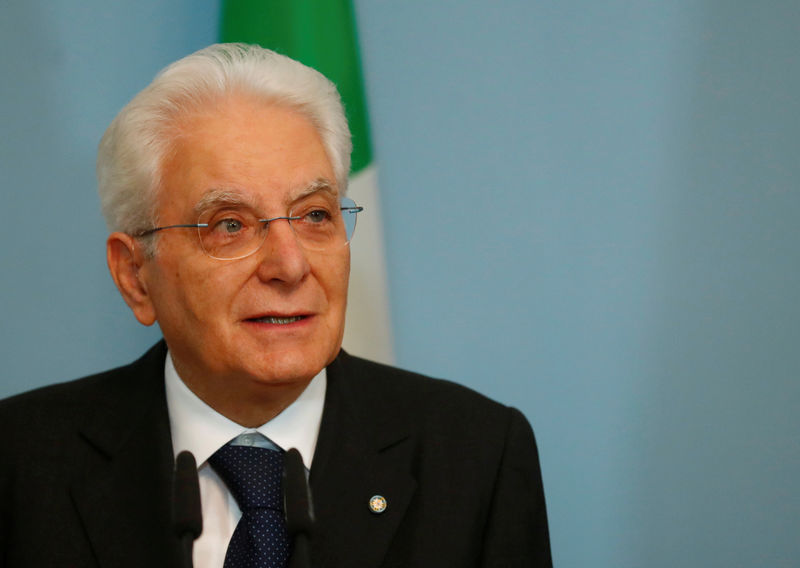 © Reuters. FILE PHOTO: Italian President Sergio Mattarella speaks during the news conference in Riga
© Reuters. FILE PHOTO: Italian President Sergio Mattarella speaks during the news conference in RigaBy Steve Scherer
ROME (Reuters) – Italy’s president and its central bank governor on Saturday warned that the country’s debt must remain sustainable after the populist government unveiled plans to significantly raise deficit spending next year.
Late on Thursday, the ruling parties – made up of the anti-establishment 5-Star Movement and the right-wing League – proposed a 2019 deficit that is, at 2.4 percent of gross domestic product (GDP), three times the previous administration’s target.
The announcement rattled markets on Friday, prompting a sell-off of bonds and a rout of banking stocks. It also set up a clash with the European Commission, which monitors and enforces EU fiscal rules.
President Sergio Mattarella, addressing a group at the presidential palace that had marked the 70th anniversary of the constitution, noted that the state’s founding law requires “balanced budgets and the sustainability of debt.”
“This is to protect the savings of our fellow citizens,” he said.
A little later at a conference in central Italy, Bank of Italy Governor Ignazio Visco said the country’s debt, the largest among big European Union economies at 131 percent of GDP, must not be allowed to increase.
“Italy needs to favor public and private investment and to contain and reduce public debt,” Visco said, according to Ansa state news agency. The debt must be “put on downward path,” he added.
Matteo Salvini, leader of the League and also a deputy prime minister, responded to Mattarella by saying that years of Brussels-imposed austerity had driven up debt.
“Be calm Mr. President,” Salvini said in a statement. “Years of budgets imposed by Europe have made our public debt explode… finally we are changing course and betting on the future and on growth.”
Earlier, before either Mattarella or Visco spoke, 5-Star leader Luigi Di Maio said the budget would “repay the people for the thieving of the past”, though he added the government’s intention was not to challenge the EU or financial markets.
The ruling parties pushed Economy Minister Giovanni Tria, who is an economist unaffiliated with either group, to sign off on their plans to hike deficit spending. Italian media said Mattarella had supported Tria’s failed effort to keep the deficit target below 2 percent of GDP.
The president and the central banker have no direct role in making economic policy.
The 77-year-old president can reject a law and send it back to parliament, but he can do so only once. Parliament can then pass it again, unchanged, and he must sign it into law.
Fusion Media or anyone involved with Fusion Media will not accept any liability for loss or damage as a result of reliance on the information including data, quotes, charts and buy/sell signals contained within this website. Please be fully informed regarding the risks and costs associated with trading the financial markets, it is one of the riskiest investment forms possible.
Source: Investing.com





























